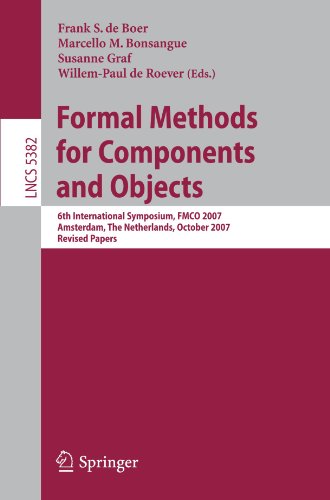

Most ebook files are in PDF format, so you can easily read them using various software such as Foxit Reader or directly on the Google Chrome browser.
Some ebook files are released by publishers in other formats such as .awz, .mobi, .epub, .fb2, etc. You may need to install specific software to read these formats on mobile/PC, such as Calibre.
Please read the tutorial at this link: https://ebookbell.com/faq
We offer FREE conversion to the popular formats you request; however, this may take some time. Therefore, right after payment, please email us, and we will try to provide the service as quickly as possible.
For some exceptional file formats or broken links (if any), please refrain from opening any disputes. Instead, email us first, and we will try to assist within a maximum of 6 hours.
EbookBell Team

4.7
26 reviewsFormal methods have been applied successfully to the verification of medium-sized programs in protocol and hardware design. However, their application to the development of large systems requires more emphasis on specification, modelling and validation techniques supporting the concepts of reusability and modifiability, and their implementation in new extensions of existing programming languages like Java.
The 6th International Symposium on Formal Methods for Components and Objects, FMCO 2007, was held in Amsterdam, The Netherlands, in October 2007. This book presents 12 revised papers submitted after the symposium by the speakers of each of the following European IST projects: the IST-FP6 project Mobius, developing the technology for establishing trust and security for the next generation of global computers; the IST-FP6 project SelfMan on self management for large-scale distributed systems based on structured overlay networks and components; the IST-FP6 project GridComp and the FP6 CoreGRID Network of Excellence on grid programming with components; the Real-time component cluster of the Network of Excellence on Embedded System Design ARTIST, focussing on design processes, and architectures for real-time embedded systems; and the IST-FP6 project CREDO on modeling and analysis of evolutionary structures for distributed services.